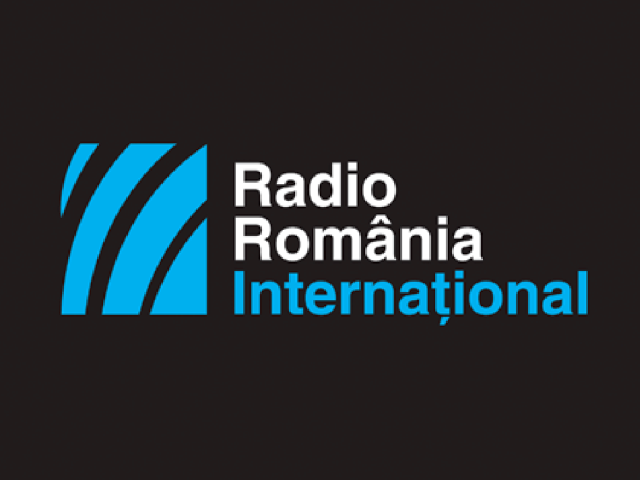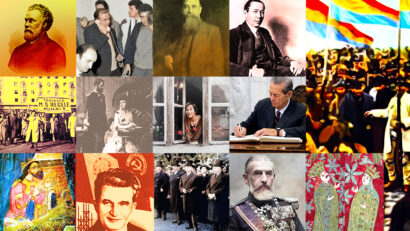The Romanian Jews in WWI
Romanias Great Union Centennial has also entailed the participation of others in the Great War and their contribution to eliminate the effects of war

Steliu Lambru, 23.04.2018, 14:15
The ethnic minorities of Romania, prior to 1918, also joined the effort of building Greater Romania, and ethnic Jews were making up one of those communities. Without enjoying rights, many enrolled in the army, participated as front nurses in the war or through charity work have made the war a lighter burden. At the end of the war, they received Romanian citizenship, concurrently with all the rights granted by a democratic state.
The history of Jewish participation in the big moments of Romania’s modern history starts with the 1877-1878 Independence War. In that war, the Jews served as soldiers and officers, doctors and nurses, on the battlefield and behind the frontlines, in hospitals and wherever they were needed to alleviate the pain of those injured and to treat their wounds. In the assault on the Grivita stronghold, mounted by the unit led by captain-hero Valter Mărăcineanu, the Jew Mauriciu Brociner lost his life in the line of duty, just like Valter Maracineanu himself and other heroes. Historian Marius Popescu from the Centre of the History of Jews in Romania says the ultimate sacrifice paid by Brociner is not a singular case. In the Second Balkan War of 1913, the Romanian army was also made up of Jewish military such as captain Armin Iaslovici, lieutenant in the war of 1877-1878, and major in 1916, at the start of the Great War.
Marius Popescu says the participation of Romanian Jews in WWI is comparable to that of the other Jewish minorities in the European countries: ”In the Old Kingdom, the Jewish population amounted to 230,000 people, 23,000 of them being mobilised, accounting for 10% of the total Jewish population. The figure is similar to that registered in other countries which had Jewish minorities, where the same percentage of Jews contributed to the war. Of the total number of Jews who contributed to the war, 882 died, 825 got injured, 449 were taken prisoner and 3,043 went missing. So, it was quite a big mobilisation.”
In their turn, Jewish civilians have also written incredible pages of heroism in the war. One such story occurred in the end of 1916, when Romania was under German occupation. Marius Popescu: ”As a case-study I would like to mention a hero, who was decorated post-mortem, namely Herman Kornhauser. He was in Târgovişte in the month of December 1916 and he procured foodstuffs and civilian clothes to help the Romanians who had been taken prisoner by the Germans and sent to German camps. He even facilitated the escape of some prisoners from those camps, but he was caught by the German occupation authorities, sentenced to death and executed. He was decorated post-mortem the Medal of Military Virtue, Second Class. This was not a unique case. Just like Kornhauser, many others made acts of heroism and bravery. He was decorated post-mortem with the War Medal of Military Virtue, 2nd class. That was not a single act, there were many other heroic acts like Kornhauser’s.”
The Jewish communities got fully involved in Romania’s war effort starting in 1916. Their effort became more intense in 1917 when the authorities had taken refuge in Moldavia and the Romanian and Russian armies were fighting the Central Powers in the Carpathians and the Siret river line. Marius Popescu is back at the microphone with details: “Besides their direct involvement in the war, the Jewish communities also acted behind the front line, providing their thorough support for the country’s war effort. They also had a material contribution. During the war, a relief committee of the Union of Local Jews was set up, which had branches across the entire country. The committee was in charge of collecting assets and money as war relief. It cooperated with other institutions such as the Red Cross, the Fighters’ Family, the ‘Regina Maria’ (Queen Marie) hospital networks and many others. The Jewish community got fully involved in the war effort. They put at the disposal of the Romanian army the Jewish synagogues and schools, the entire network of Jewish community institutions. What’s worth mentioning is that, during the war, the Jews were not Romanian citizens. These people did take up arms and fought along the Romanians.”
The instatement of peace did not mean that hardships had come to an end. Marius Popescu will tell us next how some of the Jews got involved in the reconstruction process: “Substantial sums of money were granted individually. For instance, a very rich Jewish industry owner in Botoşani county, Frederic Costiner, donated 20 thousand lei to help the relatives of the villagers killed in the war buy land. He was a local philanthropist and this is how he showed his gratitude and respect for the victims of the war. Many Jews made such donations before peasants started being granted plots of land according to the 1923 Constitution.”
King Ferdinand I was the one who recognized the Jewish community’s loyalty to the Romanian state: “At the end of the war, King Ferdinand made a very important declaration. He said that he had had the intuition that all the inhabitants of Romania, irrespective of their ethnicity and origin, were animated by the same noble feelings of fraternity. This declaration was a sort of acknowledgement of the merits of all those who had participated in or had given a helping hand to the reunification war.”
A final recognition act was the abrogation of article 7 in the 1866 Constitution. The Constitution of Greater Romania of 1923 granted rights to all of Romania’s citizens, irrespective of their religion.





























